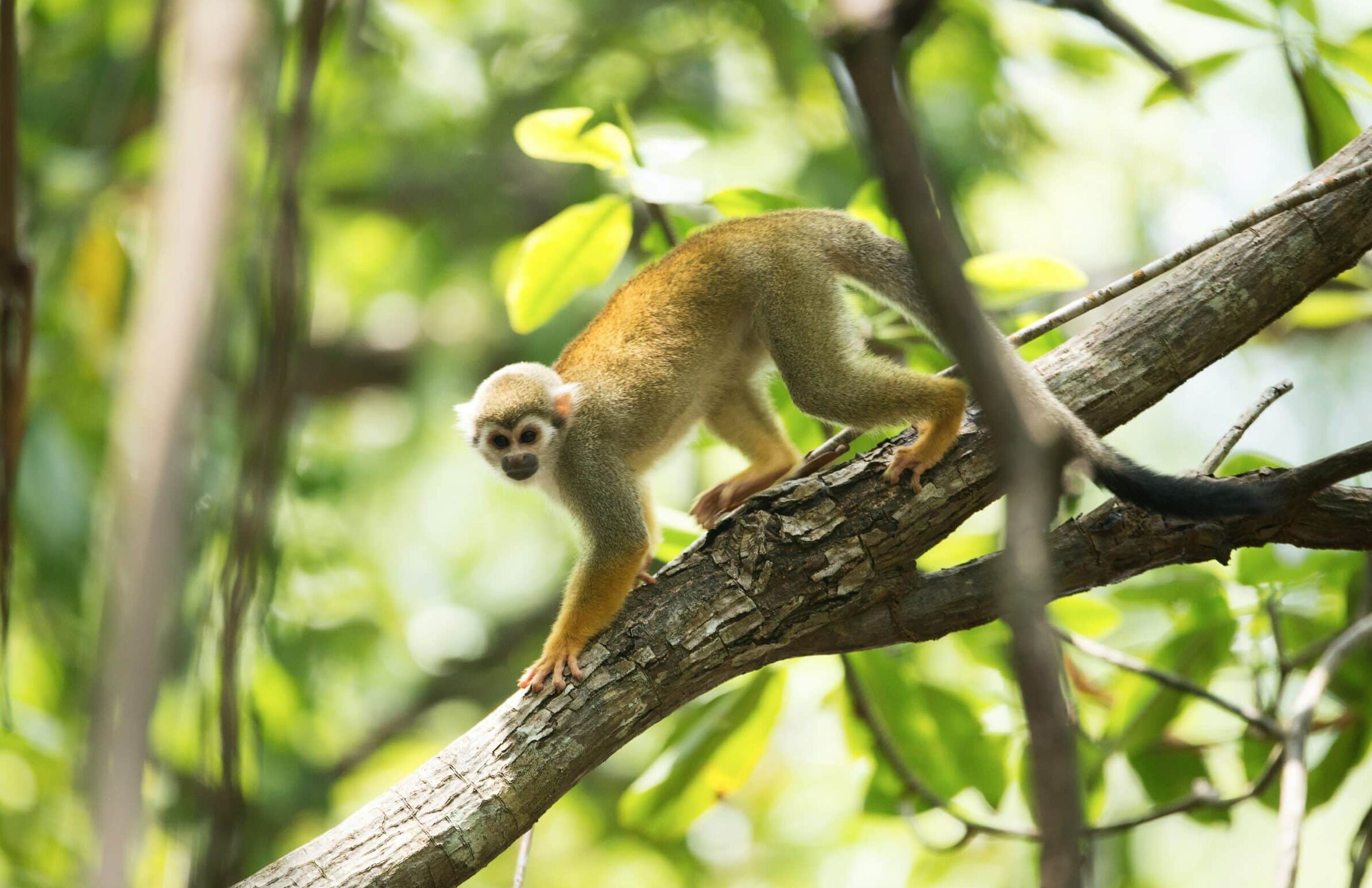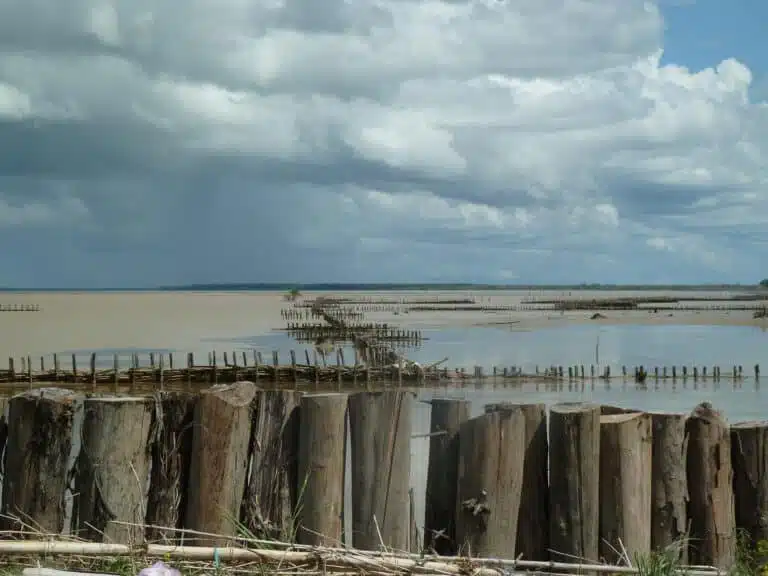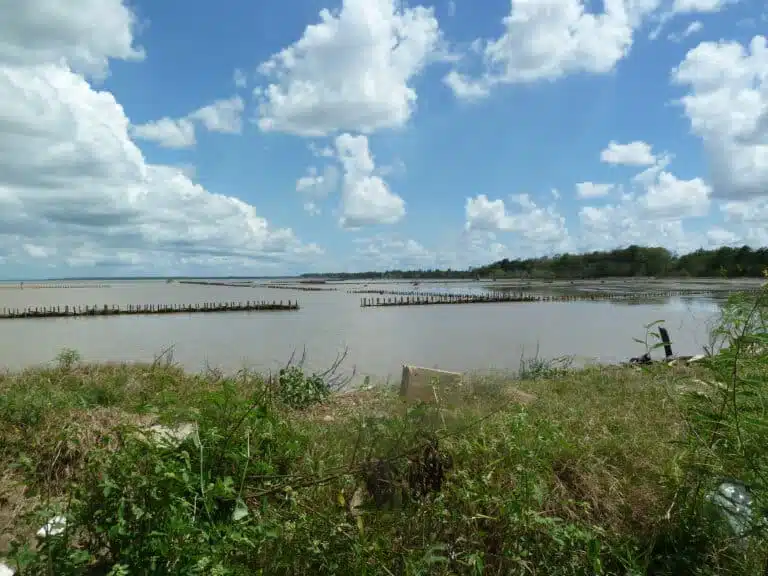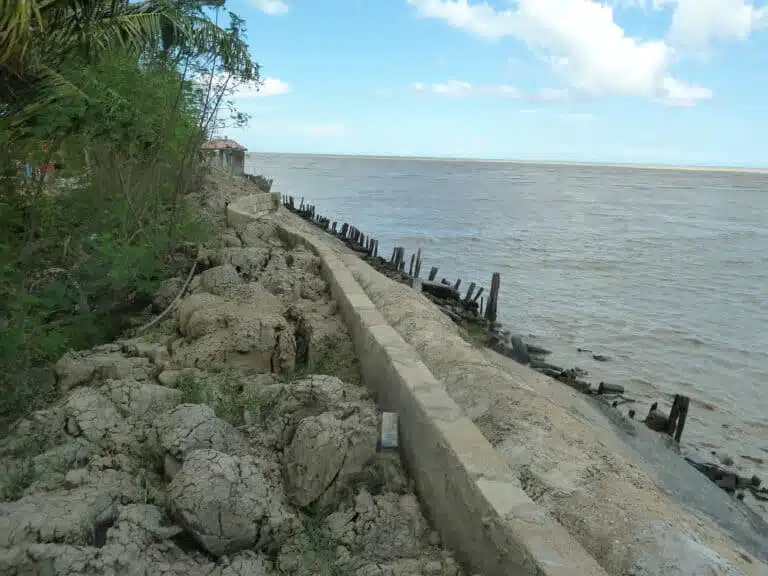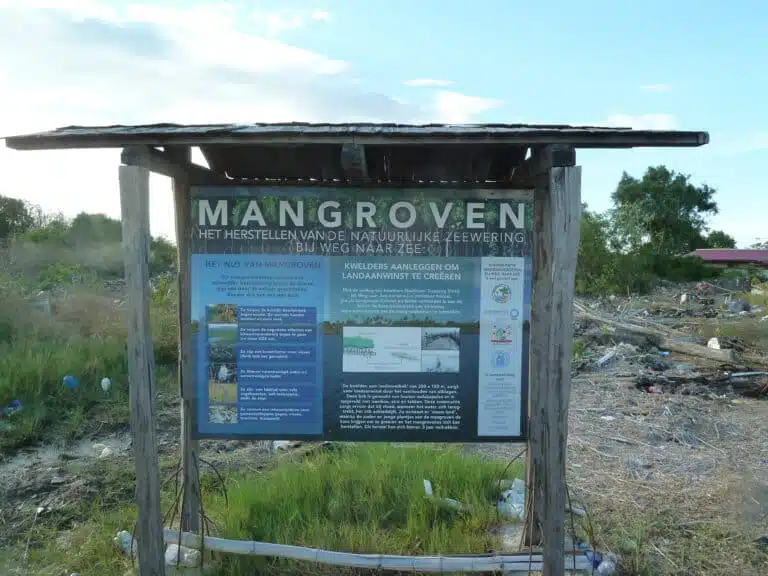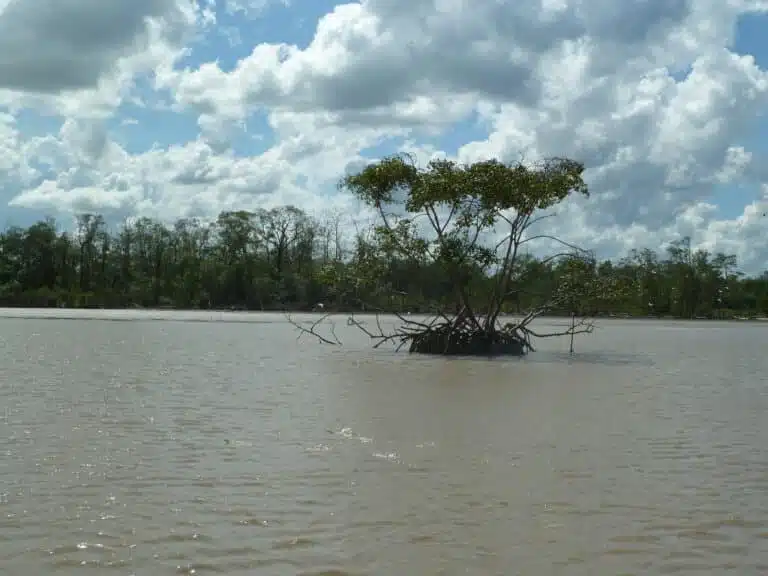Rising risks for Suriname’s coastal communities
Suriname’s low-lying coastline makes it one of the most vulnerable countries in the world to sea-level rise. Much of the population lives just a few metres above mean sea level, leaving communities at high risk of flooding and erosion. The dynamic muddy coastline, influenced by sediment from the Amazon, adds complexity to coastal risk management.
Mangroves, which help mitigate these risks, face increasing threats from natural coastal cycles, development pressures, and pollution. This has left areas such as Paramaribo, the capital, increasingly exposed to flood and erosion hazards. Addressing these challenges requires a combination of innovative approaches that balance immediate needs with long-term resilience.
